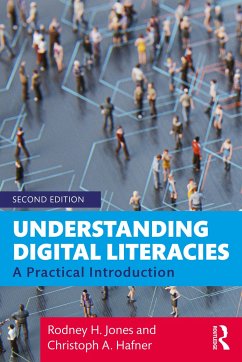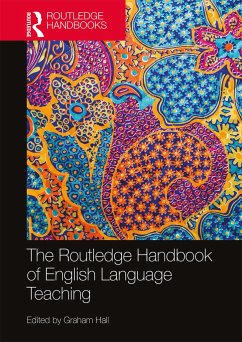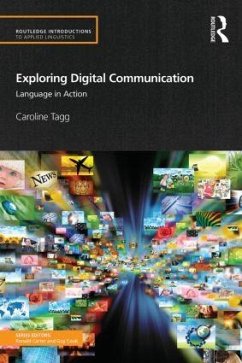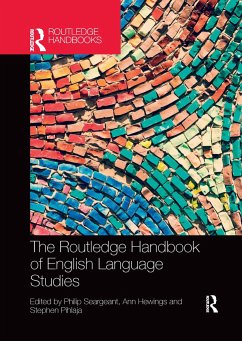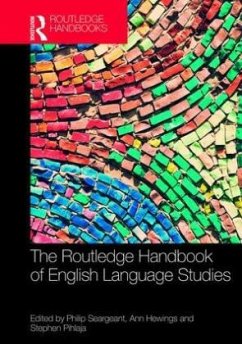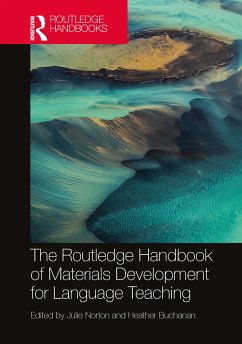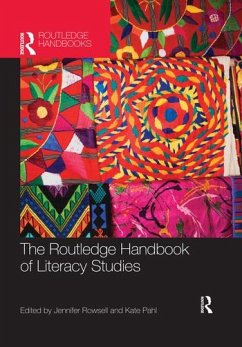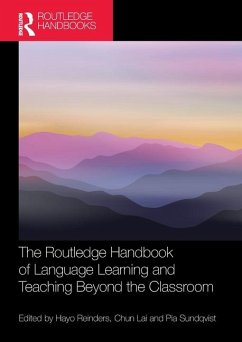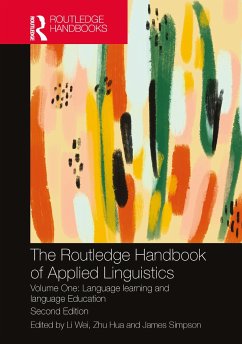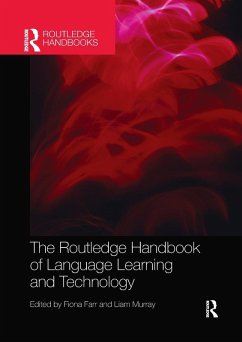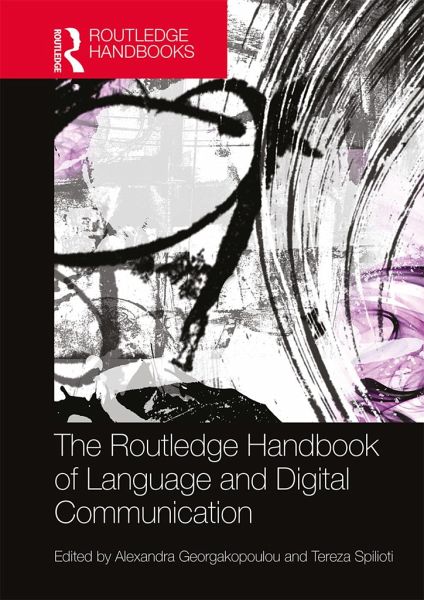
The Routledge Handbook of Language and Digital Communication
Versandkostenfrei!
Versandfertig in 6-10 Tagen
53,99 €
inkl. MwSt.

PAYBACK Punkte
27 °P sammeln!
The Routledge Handbook of Language and Digital Communication provides a comprehensive, state-of-the-art overview of language-focused research on digital communication, taking stock and registering the latest trends that set the agenda for future developments in this thriving and fast-moving field. The contributors are all leading figures or established authorities in their areas, covering a wide range of topics and concerns in the following seven sections:- Methods and perspectives- Language resources, genres, and discourses- Digital literacies- Digital communication in public- Digital selves ...
The Routledge Handbook of Language and Digital Communication provides a comprehensive, state-of-the-art overview of language-focused research on digital communication, taking stock and registering the latest trends that set the agenda for future developments in this thriving and fast-moving field. The contributors are all leading figures or established authorities in their areas, covering a wide range of topics and concerns in the following seven sections:
- Methods and perspectives
- Language resources, genres, and discourses
- Digital literacies
- Digital communication in public
- Digital selves and online-offline lives
- Communities, networks, relationships
- New debates and further directions.
This volume showcases critical syntheses of the established literature on key topics and issues and, at the same time, reflects upon and engages with cutting-edge research and new directions for study (as emerging within social media). A wide range of languages is represented, from Japanese, Greek, German, and Scandinavian languages, to computer-mediated Arabic, Chinese, and African languages.
The Routledge Handbook of Language and Digital Communication is an essential resource for advanced undergraduates, postgraduates, and researchers within English language and linguistics, applied linguistics, and media and communication studies.
- Methods and perspectives
- Language resources, genres, and discourses
- Digital literacies
- Digital communication in public
- Digital selves and online-offline lives
- Communities, networks, relationships
- New debates and further directions.
This volume showcases critical syntheses of the established literature on key topics and issues and, at the same time, reflects upon and engages with cutting-edge research and new directions for study (as emerging within social media). A wide range of languages is represented, from Japanese, Greek, German, and Scandinavian languages, to computer-mediated Arabic, Chinese, and African languages.
The Routledge Handbook of Language and Digital Communication is an essential resource for advanced undergraduates, postgraduates, and researchers within English language and linguistics, applied linguistics, and media and communication studies.





